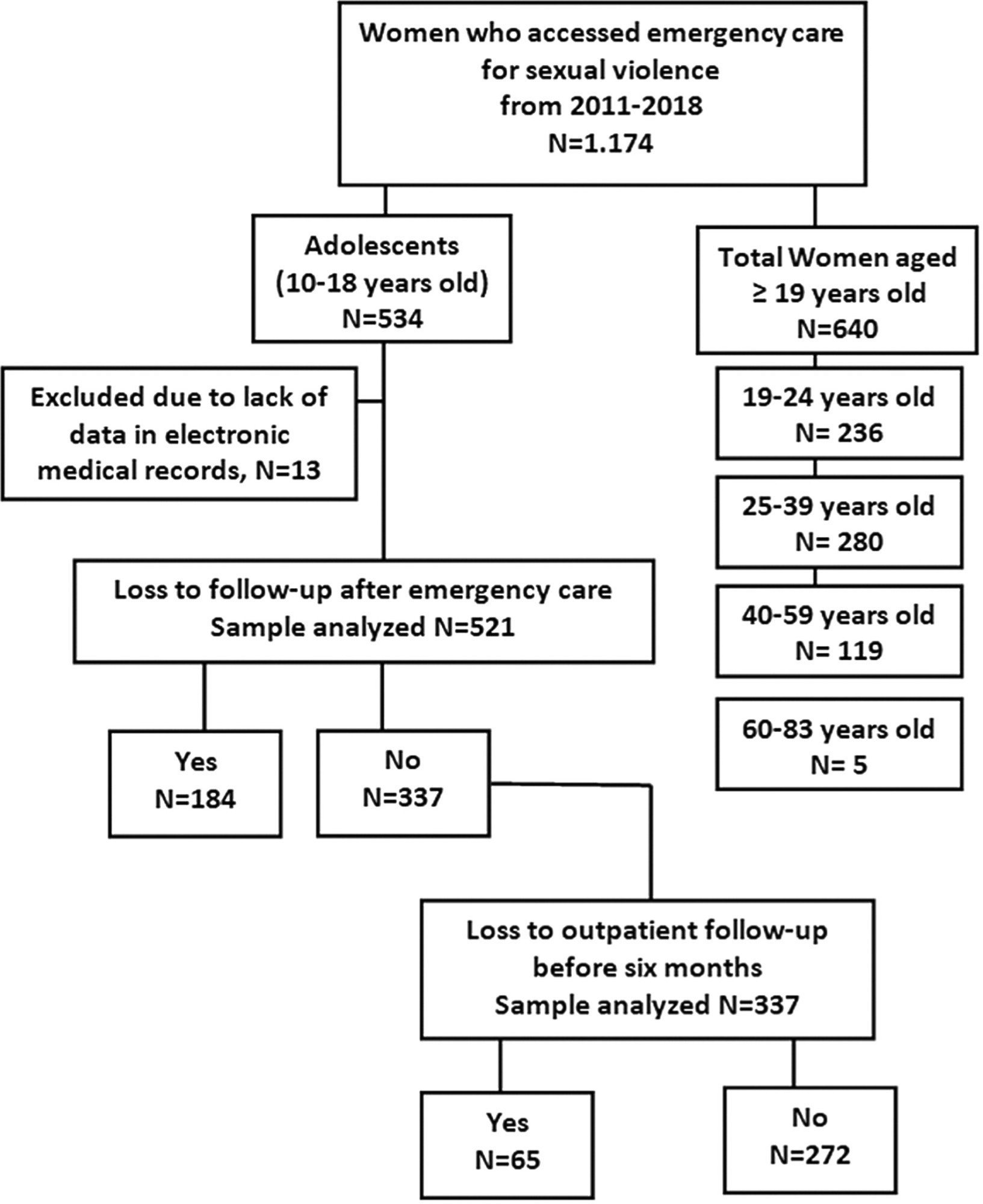-
Original Article/Sexual Violence/Pediatric and Adolescent Gynecology
Adolescent Female Victims of Sexual Violence: Analysis of Loss of Follow-up after Emergency Care and Outpatient Follow-up
Revista Brasileira de Ginecologia e Obstetrícia. 2023;45(11):661-675
12-05-2023
Summary
Original Article/Sexual Violence/Pediatric and Adolescent GynecologyAdolescent Female Victims of Sexual Violence: Analysis of Loss of Follow-up after Emergency Care and Outpatient Follow-up
Revista Brasileira de Ginecologia e Obstetrícia. 2023;45(11):661-675
12-05-2023Views82See moreAbstract
Objective
To assess the loss to follow-up after emergency care and during 6-months of outpatient follow-up, and the associated variables, among adolescent sexual violence survivors.
Methods
This is a retrospective study with review of the medical records of 521 females, aged 10 to 18 years, who received emergency care in a referral service in São Paulo, Brazil. The variables were sociodemographic; personal history; characteristics of abuse, disclosure, and reactions triggered after abuse (physical and mental disorders as well as social changes), psychotropic prescription needs, and moment of abandonment: after emergency care and before completing 6 months of outpatient follow-up. To compare groups of patients lost to follow-up at each time point, we used the Chi-square and Fisher exact tests followed by multiple logistic regression with stepwise criterion for selection of associated variables. We calculated the odds ratio with confidence interval (OR, CI 95%). The level of significance adopted was 5%.
Results
A total of 249/521 (47.7%) adolescents discontinued follow-up, 184 (35.3%) after emergency care and 65 (12.4%) before completing outpatient follow-up. The variables of living with a partner (OR = 5.94 [CI 95%; 2.49–14.20]); not having a religion (OR = 2.38 [CI 95%;1.29–4.38)]), having a Catholic religion [OR = 2.11 (CI 95%; 1.17–3.78)]; and not disclosing the abuse [OR = 2.07 (CI 95%; 1.25–3.44)] were associated with loss to follow-up after emergency care. Not needing mental disorder care (OR = 2.72 [CI 95%; 1.36–5.46]) or social support (OR = 2.33 [CI 95%; 1.09–4.99]) were directly associated with loss to outpatient follow-up.
Conclusion
Measures to improve adherence to follow-up should be aimed at adolescents who live with a partner and those who do not tell anyone about the violence.



